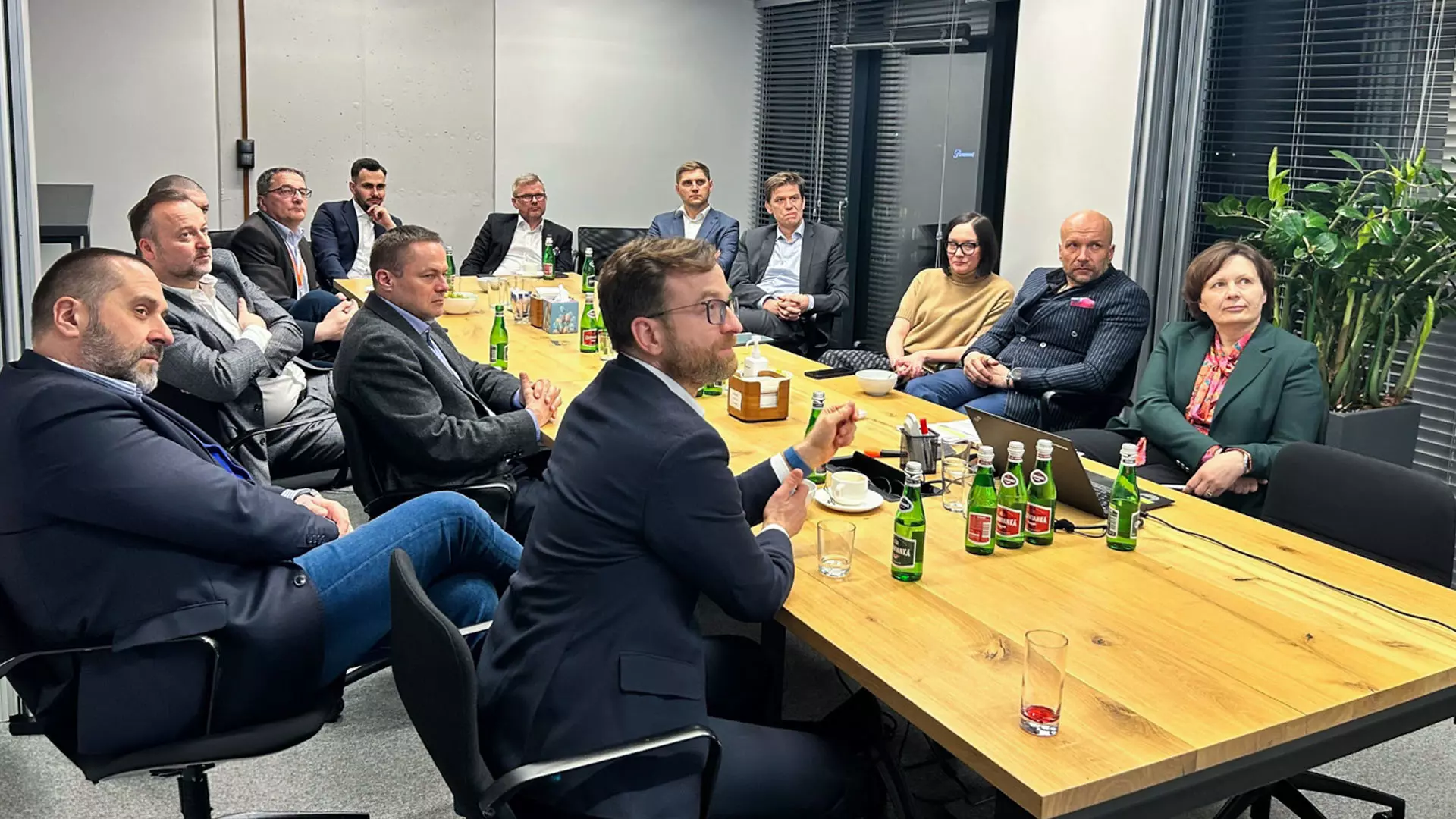 Credit: Givaga | Envato
Credit: Givaga | EnvatoRE Scenario in CEE 2024: Retail Renaissance & Love for Logistics
Exclusive report with all takeaways from the GRI Club roundtable meeting gathering leading CEE real estate market players
February 22, 2024Real Estate
Written by Helen Richards
The year 2023 was defined by high interest rates, posing a spectrum of uncertainties and challenges for real estate investors in Central and Eastern Europe (CEE). Transaction volumes in CEE dropped more than 50% on the previous year, totalling EUR 4.9 billion.
Considering this drop in transaction volume, investors, developers, and asset managers at GRI Club’s most recent meeting for CEE real estate decision-makers demonstrated mixed sentiments.
GRI Club’s latest report reveals all key takeaways from the discussion.
One participant shared positive experiences of relative stability, although this was attributed to the investment of their own equity, hence not feeling the forces of high financing costs.
Another participant attributed their success during 2023 to the pipeline of deals carried through from 2020 and 2021 - considerably positive years particularly for the logistics sector - and therefore focused on delivering developments during 2023. 2024’s first GRI hybrid club meeting for CEE leading market players took place in Warsaw. (Credit: GRI Club)
2024’s first GRI hybrid club meeting for CEE leading market players took place in Warsaw. (Credit: GRI Club)
Positivity prevailed most noticeably for the retail and logistics sectors. One participant reported their logistics transactions outperforming those in the US and UK in 2023, and revealed the CEE as their third largest logistics portfolio, after the US and France.
There is still notable demand from logistics tenants within Poland, Western countries, and further afield. Discussions revolved around reshoring trends, especially from the Far East. Automotive companies and other industries are observed relocating to Central Europe due to decentralisation strategies aiming to ease supply chain risks.
Romania was also recognised for its growing logistics sector, driven by companies relocating their distribution centres closer to customers. It was suggested that Romania is attracting business previously rooted in Poland, particularly from e-commerce companies extending their distribution networks.
Meanwhile, participants noted a renaissance in the retail market, with increased interest and activity, recognised in both CEE and SEE. In Prague it was noted as the most actively traded asset at present.
It was suggested that the retailers active today are robust. They have survived the rise of e-commerce, the shock of the pandemic, and the general decline of retail culture. These retailers know they will have footfall and customers in their shops, or they wouldn’t be there, instilling confidence in the sector.
Access the full report HERE to read all exclusive takeaways from the GRI Club meeting.

The year 2023 was defined by high interest rates, posing a spectrum of uncertainties and challenges for real estate investors in Central and Eastern Europe (CEE). Transaction volumes in CEE dropped more than 50% on the previous year, totalling EUR 4.9 billion.
Considering this drop in transaction volume, investors, developers, and asset managers at GRI Club’s most recent meeting for CEE real estate decision-makers demonstrated mixed sentiments.
GRI Club’s latest report reveals all key takeaways from the discussion.
One participant shared positive experiences of relative stability, although this was attributed to the investment of their own equity, hence not feeling the forces of high financing costs.
Another participant attributed their success during 2023 to the pipeline of deals carried through from 2020 and 2021 - considerably positive years particularly for the logistics sector - and therefore focused on delivering developments during 2023.
 2024’s first GRI hybrid club meeting for CEE leading market players took place in Warsaw. (Credit: GRI Club)
2024’s first GRI hybrid club meeting for CEE leading market players took place in Warsaw. (Credit: GRI Club)Positivity prevailed most noticeably for the retail and logistics sectors. One participant reported their logistics transactions outperforming those in the US and UK in 2023, and revealed the CEE as their third largest logistics portfolio, after the US and France.
There is still notable demand from logistics tenants within Poland, Western countries, and further afield. Discussions revolved around reshoring trends, especially from the Far East. Automotive companies and other industries are observed relocating to Central Europe due to decentralisation strategies aiming to ease supply chain risks.
Romania was also recognised for its growing logistics sector, driven by companies relocating their distribution centres closer to customers. It was suggested that Romania is attracting business previously rooted in Poland, particularly from e-commerce companies extending their distribution networks.
Meanwhile, participants noted a renaissance in the retail market, with increased interest and activity, recognised in both CEE and SEE. In Prague it was noted as the most actively traded asset at present.
It was suggested that the retailers active today are robust. They have survived the rise of e-commerce, the shock of the pandemic, and the general decline of retail culture. These retailers know they will have footfall and customers in their shops, or they wouldn’t be there, instilling confidence in the sector.
Access the full report HERE to read all exclusive takeaways from the GRI Club meeting.
